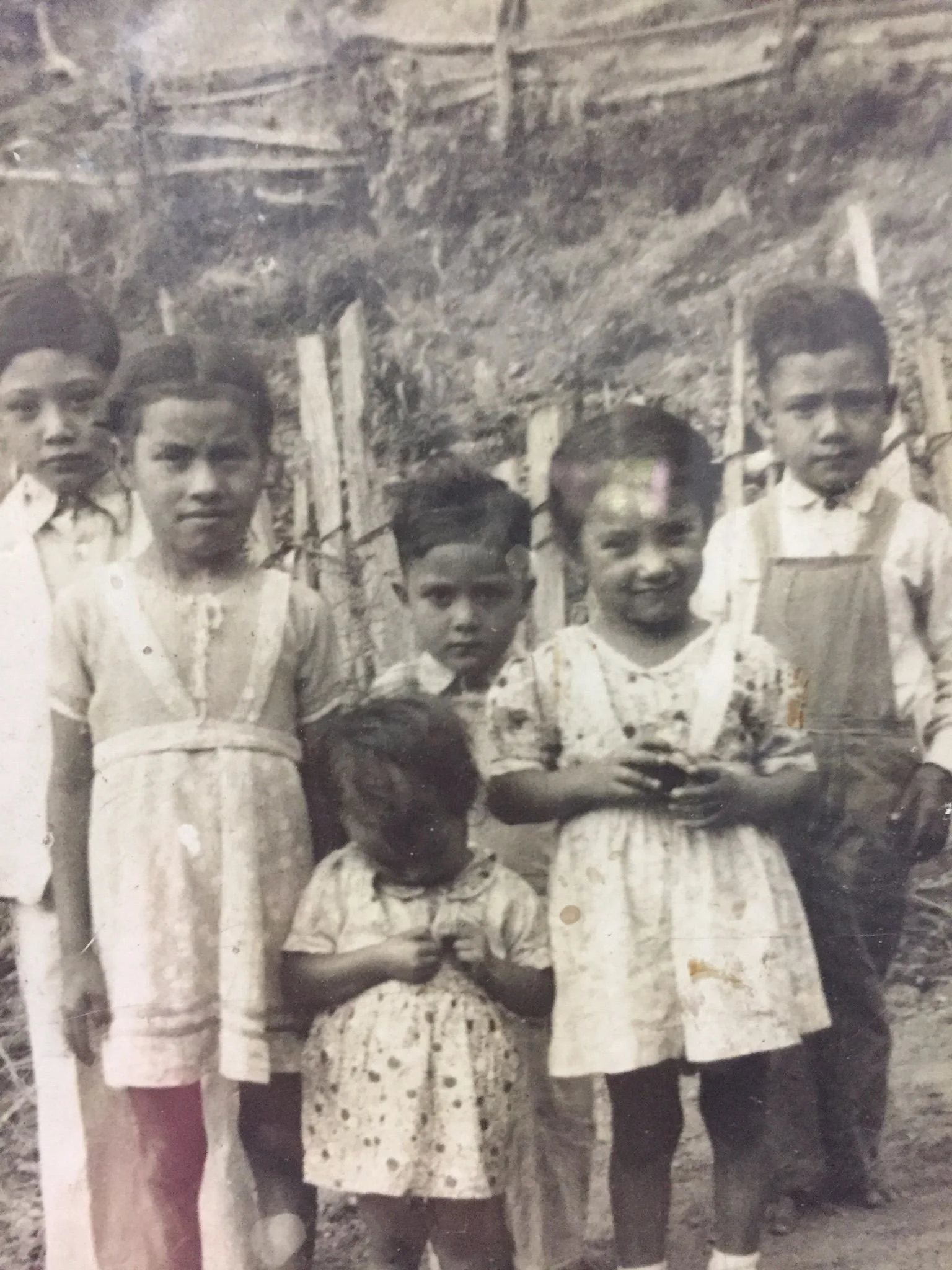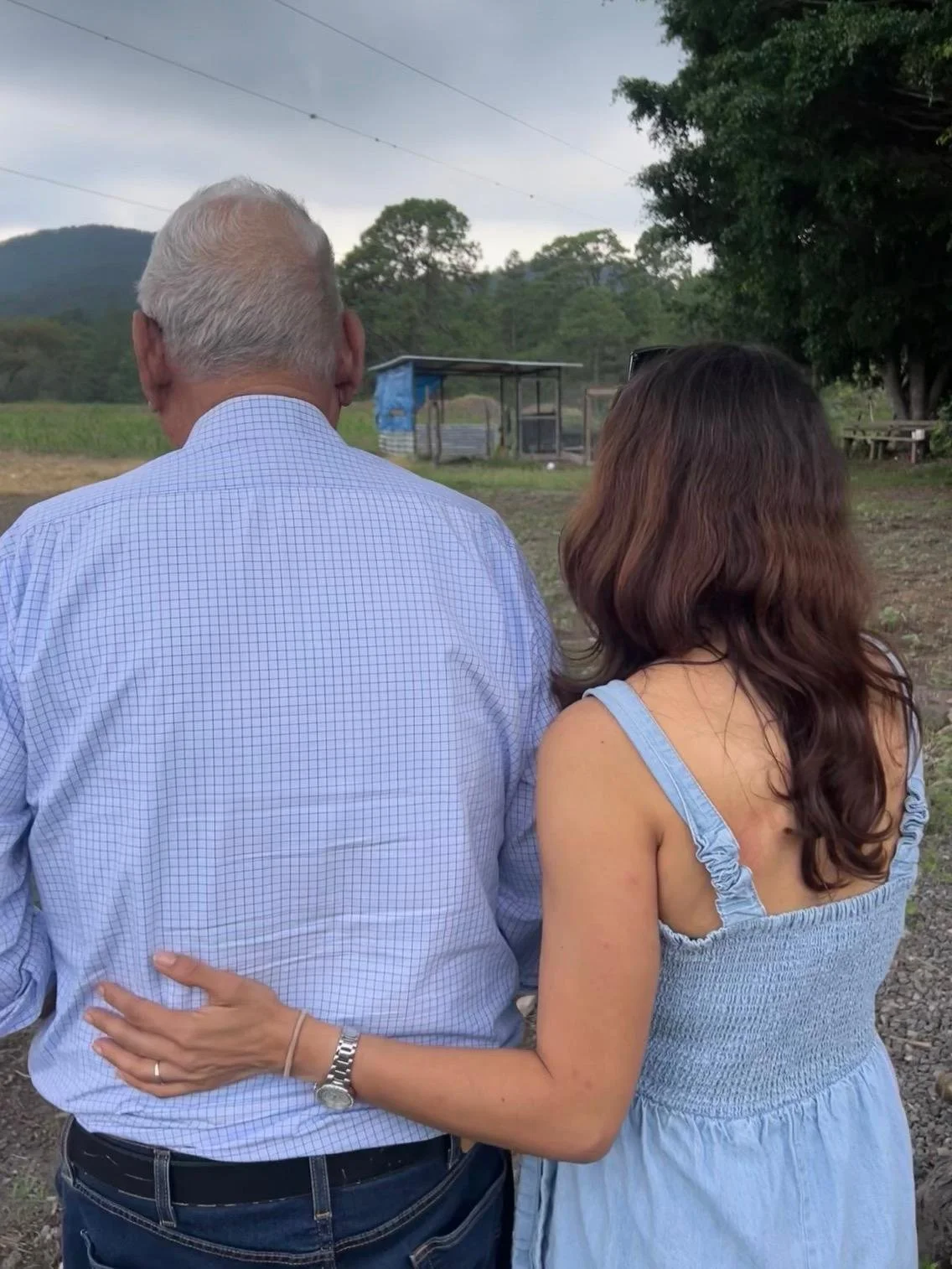The Gifts My Father Left Behind Part 3: The Quiet Revolution of Kindness
I remember working part-time at the office during college when I overheard Dad telling Mom to write a check. I observed as he said simply: "Doña Lidia, write a check for the welder." When he gave the amount, my mom asked, "Why so much?" "His machine gave out. He can't work without it. It's the right thing to do," Dad said, as if that settled everything. She raised an eyebrow, the way she always did when she was thinking about cash flow and budgets, but she knew better—she knew about the welder's failing vision from all those years working with the torch. He had made his mind up. Which, in his world, it did settle everything. See, Mom was kind too—deeply generous with family and friends—but Dad's kindness had no boundaries about who deserved help.
Which brings me to his third gift: kindness.
"He always treated us like equals."
Those words came from another employee, she had been with the company for over fifteen years. She said it simply, matter-of-factly, and people smiled and nodded.
I've been thinking about that phrase for a while now, because in a world obsessed with hierarchy and power dynamics—where many bosses use their position to diminish others—treating people as equals isn't just nice, it's revolutionary
Lately kindness is no longer trendy. We started thinking it meant being soft, permissive, and easily walked over. But watching my father navigate decades of business, economic crises, and human complexity taught me something : kindness isn't weakness dressed up in good intentions. It's strength that's secure enough to lift others up.
Let me tell you what kindness looked like in action. Dad would get a craving for Chinese food on a random Wednesday. But instead of just ordering for himself, he'd buy lunch for everyone in the office. Not as a calculated team-building exercise or because it was someone's birthday—simply because his instinct, when something good happened to him, was to share it.
My father (back right, barefoot) with his brother, sister, and two neighbor girls in Las Lomas, a small rural community on the outskirts of Francisco Morazán.
This wasn't the strategic kindness they teach in leadership seminars. This came from something deeper, something I'm still learning to understand.
My father didn't have shoes until he was fourteen years old, he never had a toy. He knew what it felt like to be forgotten, to watch from the outside, to carry the weight of having less. He knew first hand how valuable an act of kindness felt coming from a stranger. When success finally found him, he faced the choice we all face: Do we use our advantages to widen the gap, or do we spend our lives trying to close it?
Every Christmas since the 1970s, he would drive to his hometown with boxes of apples. In a place where imported fruit was a luxury most children had never experienced, he'd set up at dawn while kids formed excited lines. From the back of his pickup truck, we'd hand out apples—later apples and grapes, eventually small toys or money when we ran out of time to shop.
I can still see their faces, bright with anticipation—when we arrived, we were told the kids had been lining up since dawn, waiting for a gift from Don Carlitos, a man who never forgot what it felt like to be overlooked.
San Buenaventura, circa 1985. My father (blue shirt) handing out Christmas apples from the back of his pickup truck. Kids would line up at dawn, waiting for their gift from Don Carlitos.
But the apples were just what I could see. Dad also quietly paid school tuition for kids whose families couldn't afford it—and that's just what I know about. I also remember when I was around seven years old, Dad organized a brigade of dentists to provide free services to the community. Our country house was transformed into a full dental office with several dentists and lines of patients waiting outside. I'm sure there's more I'm not even aware of, more lives quietly changed by his belief that bright kids shouldn't have their futures limited by circumstances beyond their control.
Last year I read "The Road to Character" by David Brooks. In his book he mentions that we humans either work towards building our resume or our eulogy. I believe my dad worked more toward the latter. He was a simple man and never liked to take credit—he just did what he felt was right. That's why I only feel compelled to write this now that he has passed, as he would have been mortified. He never liked to feel like he was super special, and he left feeling like he could have done more.
Here's what I want you to understand about kindness in leadership, in business, in the beautiful complexity of human relationships. It's not the soft skill our competitive world makes it out to be. It's actually the secret ingredient that makes teams unbreakable.
Kristin Neff captures this in "Fierce Self-Compassion"—when leaders balance genuine care with competence, they create environments where people don't just work harder; they become more creative, more resilient, more willing to take the risks that lead to breakthrough moments.
When you feel truly seen and valued, don't you naturally want to give your best? Don't you find yourself going the extra mile not because you have to, but because you want to?
But how do we practice this kind of kindness in a world that moves at lightning speed, where we're measured by metrics and quarterly reports, where tough decisions are part of daily reality?
Here's what my father taught me—both through what he did beautifully and what he struggled with—lessons I'm still learning to live:
1. Start with yourself, even when the pressure is relentless. We can't give what we don't have. If you're constantly criticizing yourself, running on empty, treating your own mistakes like capital crimes in the face of quarterly pressures, that harshness will leak into how you treat others. Kindness flows from the inside out. Be gentle with your own learning process, your own humanity. Dad was generous with everyone except himself—always believing he could have done more, given more, been better. Don't make that mistake. The kinder you are to yourself, especially during high-stress periods, the more authentic kindness you'll have to offer others.
2. Give without keeping score, even when everything else is measured. Real kindness doesn't come with strings attached or hidden agendas. It trusts that putting good into the world creates ripple effects we may never see but that matter anyway—even if they don't show up on bottom-line results. Dad helped that old welder not because he expected anything in return, but because a man who'd spent decades working with dangerous equipment until it damaged his vision deserved to keep earning a living with dignity. He paid for kids' education not for recognition, but because he believed every bright child deserved a chance, regardless of what their parents could afford.
3. Be a rake, not a garden hoe—especially when business is thriving. I heard him repeat this phrase to my mom whenever they were discussing salaries or considering a new idea for profit sharing with the employees. When the company did well, he found ways to spread that success—profit sharing, investment in equipment that made everyone's job easier. A garden hoe pulls everything toward itself. A rake spreads things out, shares the bounty. Success shared is success multiplied, even if it means smaller individual bonuses at the top.
4. Embrace abundance, not scarcity, even in competitive markets. I think the reason kindness feels risky to so many of us is that we're operating from a place of "not enough"—not enough time, resources, recognition to go around. But kindness operates on different mathematics than business metrics. The more you give, the more it multiplies. It's energy that expands rather than depletes. There's no limit to how much care, recognition, and support we can offer, even during budget cuts.
5. Learn to receive gracefully, even when you're expected to have all the answers. This was Dad's biggest struggle, and honestly, it's mine too. He was terrible at accepting praise, acknowledgment, or help when he needed it. He'd deflect compliments and hate being the center of attention. But here's what I'm learning: allowing others to thank you, to help you when you need it, to show you kindness in return—that's not weakness in a leadership role. It's how we create connection. It's how we model vulnerability and give others permission to be human too.
6. Don't be afraid to ask for help, even in a culture that rewards self-reliance. Part of receiving is being willing to admit when we need support. Sometimes we're the ones who need assistance, and being vulnerable enough to ask creates opportunities for others to step up, to feel valued, to realize they're not alone in their own struggles either.
7. Maintain your boundaries, even in our always-on culture. Being kind doesn't mean being available 24/7 or saying yes to every request. Sometimes the kindest thing you can do is say no, set clear expectations, address problems directly instead of letting resentment build during those inevitable crunch times. As Glennon Doyle writes in "Untamed," sometimes we have to disappoint others in order to not disappoint ourselves. That's not cruel—that's sustainable kindness that serves everyone better in the long run.
I smile thinking about the dynamic between Mom and Dad around these acts of generosity. Mom was kind too—deeply generous with family and friends—but she also knew what the books looked like at the end of each month. She'd push back sometimes, raise practical questions, try to make him think through the financial implications. But Dad's kindness had no inner circle, no VIP list. It extended to anyone who crossed his path and needed help. A stranger with a broken machine. Kids he'd never see again. People whose names he might not even know.
And you know what? Somehow, it always worked out.
Here's what I'm learning. Kindness isn't just about making people feel good. It's about creating the conditions where everyone can do their best work, take necessary risks, recover from inevitable mistakes, and contribute to something bigger than themselves.
A company is only as strong as its people. And people are strongest when they feel valued, supported, and connected to something meaningful.
So I'll ask you what I keep asking myself: In your corner of the world, with your unique combination of talents and influence, how are you choosing to close the gap? How are you using your advantages—whatever they are—to lift others up rather than set yourself apart?
Are you working toward building your resume, or are you working on your eulogy?
Because at the end of the day, that's what kindness really is—a daily choice to remember that we're all in this together, that everyone's story matters, that the legacy we leave isn't measured in what we accumulated but in how many people felt more capable, more valued, more hopeful because they crossed paths with us.
My father left this world believing he could have done more. But I see the face of that welder, able to keep working with dignity. I see those kids with their apples and the professionals whose education he made possible. I see all those employees who felt seen and valued, all those lives quietly changed by small acts of consistent kindness.
That's a pretty beautiful legacy. And it's one each of us gets to create, one ordinary Monday at a time.
If you're already being kind, keep going—even when it goes unnoticed. If you're inspired by these words, what small act of kindness could you offer today? Not because it will come back to you, but because it's who you want to be in the world.




